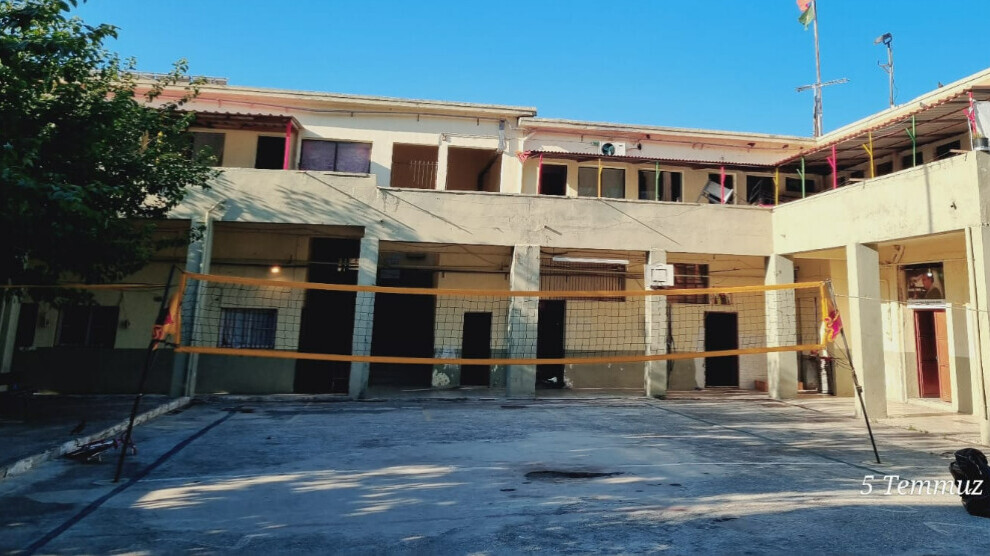Lavrio Camp stormed, refugees forcibly evacuated by the Greek police
The Lavrio Camp housing Kurdish refugees near the Greek capital Athens was stormed by the police early Wednesday evening.
The Lavrio Camp housing Kurdish refugees near the Greek capital Athens was stormed by the police early Wednesday evening.

According to reports, hundreds of police raided the Lavrio refugee camp at 4 am local time today.
Around 40 people staying in the camp were detained and transferred to another camp. Police broke the doors of the rooms during the raid, which was met with reactions from Greek civil society organizations.
Activists announced in a press statement at the Kurdish Cultural Center that following the raid by hundreds of police, refugees were forced onto buses and forcibly evacuated.
The Kurdish Cultural Center condemned the raid, which, it said, took place as a result of negotiations with the Turkish state and NATO.
The Greek Ministry of Migration claimed that the refugees left the camp voluntarily. The Kurdish Cultural Center denied the statement and said it was rather a forced evacuation.
The raid came after the new right-wing Greek government vowed a few days ago to start over from scratch in its relations with Turkey.
The next NATO summit to be held in Vilnius, Lithuania, from 11 to 12 July will also discuss the Turkish veto of Sweden’s NATO membership over conditions against the Kurds.
Lavrio is a town in the Greek province of Attica, about 60 kilometres south of Athens. It is home to one of the oldest refugee camps in Greece. Built in the 1960s for Cold War refugees from the Soviet Union, in the 1980s it was mainly political refugees from Turkey who had escaped the military coup there. Lavrio has since been known as a reception centre for Kurdish refugees and has always been a thorn in Ankara's side. From 2014 onwards, more Kurdish families from Rojava/Northern Syria came to Lavrio, fleeing the attacks of the Islamic State (IS). Most recently, they made up the majority of the residents, but Kurds from Bakur, Rojhilat and Bashur also lived in the camp.
Until a few years ago, the camp was officially recognised by Athens and was run with the help of the Greek Red Cross. But in 2017, the Syriza government surprisingly withdrew state support from the camp. Since then, Lavrio has been a kind of self-administration zone, financed by donations, including from the Kurdish Red Crescent (Heyva Sor a Kurdistanê). The self-administration of the camp worked according to the principle of Democratic Autonomy. There were committees for security, cleanliness, health, women, youth and administration.
With Lavrio, something unique was created throughout Europe. The population of the town of Lavrio with about 25,000 inhabitants showed solidarity with the people in the camp, brought food and other donations in kind, and bought their cigarettes in the morning in the small kiosk that the camp ran.